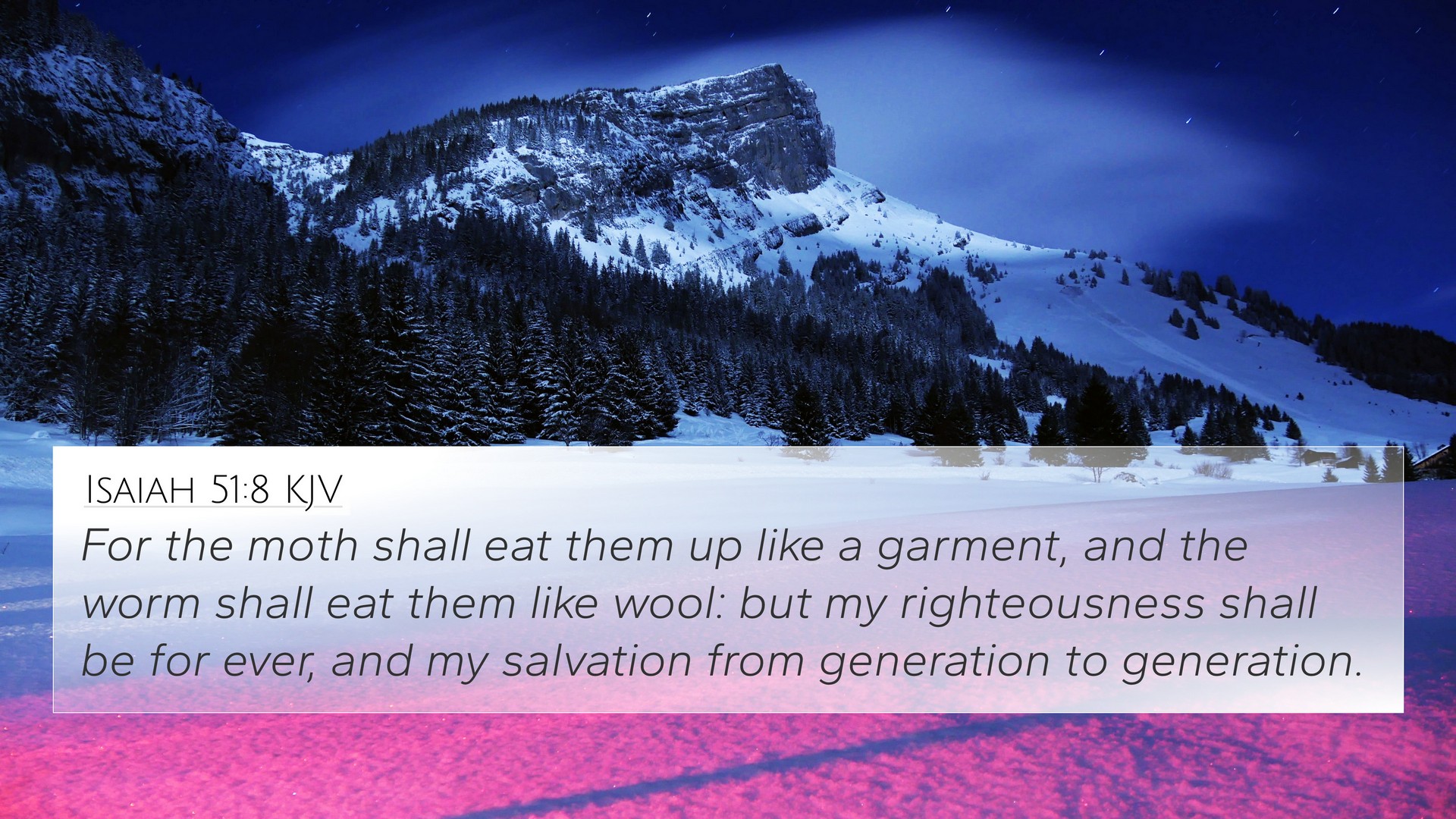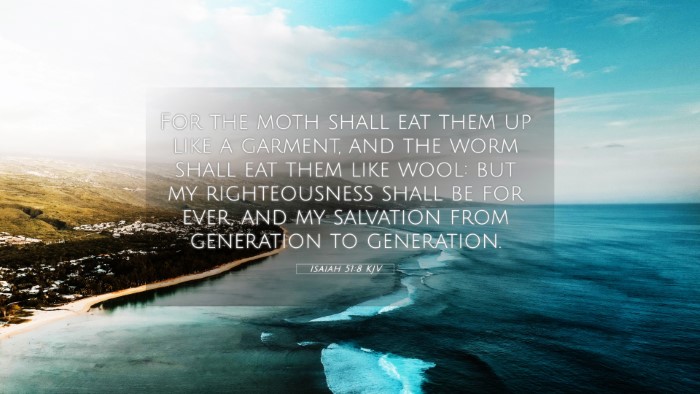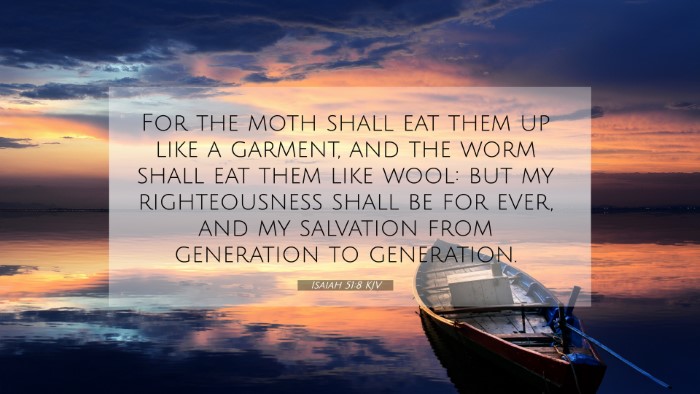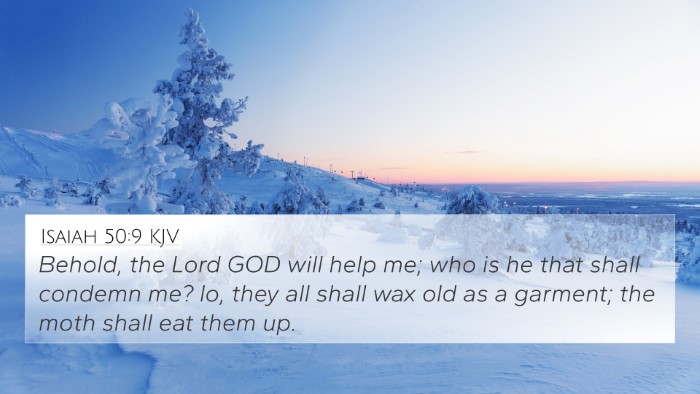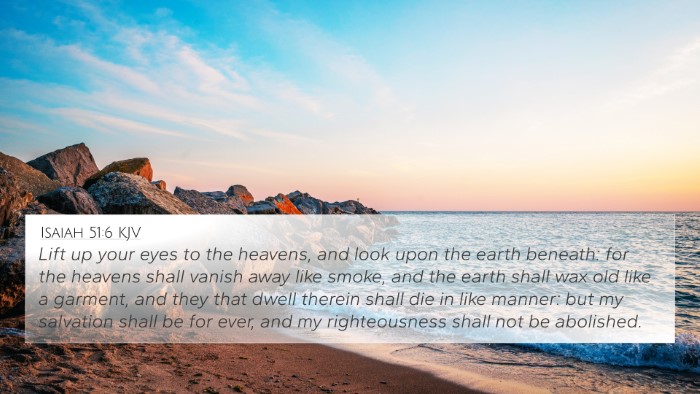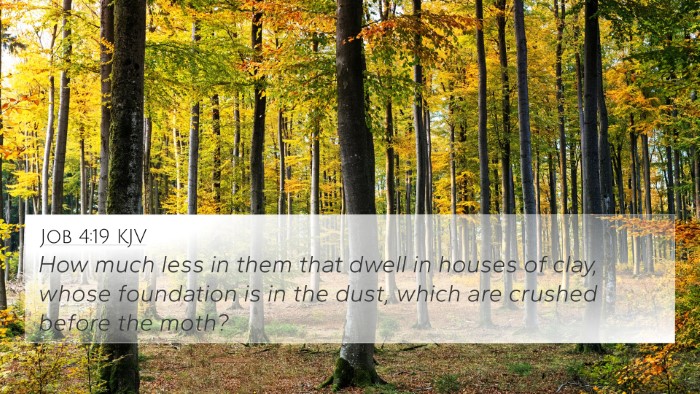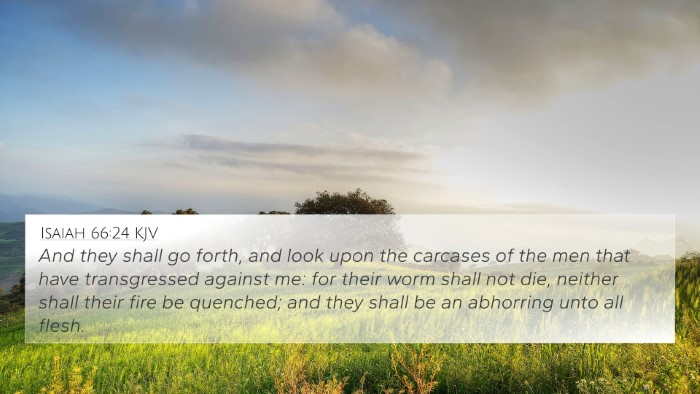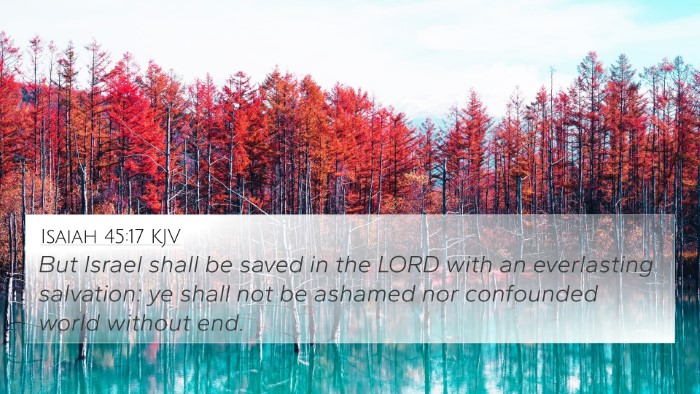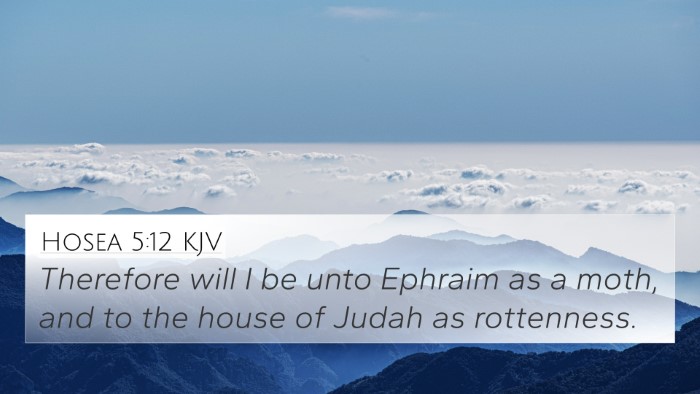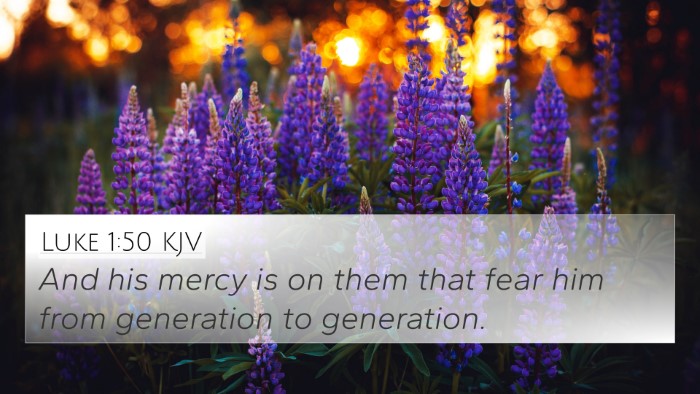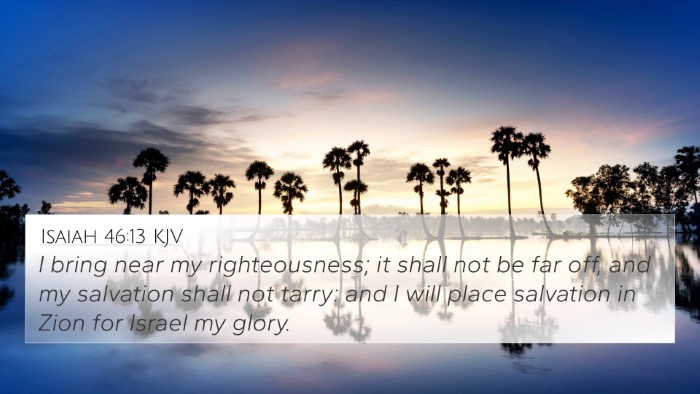Understanding Isaiah 51:8
Isaiah 51:8 states, "For the moth shall eat them up like a garment, and the worm shall eat them like wool: but my righteousness shall be forever, and my salvation from generation to generation." This verse highlights the transient nature of worldly things in contrast to the eternal nature of God's righteousness and salvation.
Summary of Biblical Insights
This verse reveals profound theological themes regarding the permanence of God's righteousness and the impermanence of earthly matters. The imagery of the moth and worm symbolizes decay and destruction, conveying how earthly possessions and human efforts are ultimately ephemeral.
Public Domain Commentary Insights
-
Matthew Henry:
Matthew Henry emphasizes that the verse portrays the inevitable decline of worldly power and riches, akin to a garment consumed by moths. His commentary suggests that true security lies in God's unwavering righteousness, which stands firm through ages.
-
Albert Barnes:
Barnes elaborates on the symbolism of the moth and worm, associating them with the judgment that ultimately befalls those who rely on temporal things. He reinforces that God's righteousness is described as eternal, providing comfort and hope for believers.
-
Adam Clarke:
Clarke interprets this verse as a profound reminder of the futility of seeking refuge in anything other than God. He highlights the contrast between the frailty of human constructs and the enduring nature of divine salvation.
Thematic Connections
This verse connects to several key themes in the Bible, particularly involving righteousness and salvation. Here are thematic connections illustrated through cross-references:
- Psalm 119:142: "Thy righteousness is an everlasting righteousness, and thy law is the truth." This verse echoes the eternal nature of God's righteousness.
- Matthew 6:19-20: "Lay not up for yourselves treasures upon earth... but lay up for yourselves treasures in heaven." This passage warns against the temporal nature of earthly riches.
- Romans 1:17: "For therein is the righteousness of God revealed from faith to faith." This highlights the revelation of God’s righteousness tied to salvation.
- 2 Corinthians 4:16-18: "For our light affliction... is but for a moment, worketh for us a far more exceeding and eternal weight of glory." This reinforces the theme of eternal versus temporary.
- 1 Peter 1:24-25: "For all flesh is as grass... but the word of the Lord endureth forever." This speaks to the fleeting nature of life against God's eternal truth.
- Isaiah 40:8: "The grass withereth, the flower fadeth: but the word of our God shall stand forever." This parallels the themes in Isaiah 51:8 about the eternal word of God.
- Hebrews 13:14: "For here have we no continuing city, but we seek one to come." This reinforces the transient nature of earthly existence in contrast to God's eternal promises.
Cross-Referencing Biblical Texts
To fully appreciate Isaiah 51:8, one can utilize various tools for Bible cross-referencing. These resources enhance the understanding of scriptural connections, providing a deeper analysis of themes. Consider the following:
- Bible Concordance: A valuable tool for locating related verses and understanding the usage of key terms.
- Bible Cross-reference Guide: A guide to finding linked verses that elaborate on similar themes and teachings.
- Cross-reference Bible Study: A method for engaging with scripture through comparative analysis and thematic exploration.
- Bible Chain References: A technique for creating pathways of related verses that illuminate broader biblical truths.
Conclusion
Isaiah 51:8 serves as a reminder of the importance of focusing on the eternal aspects of faith, namely God's righteousness and salvation, while recognizing the fleeting nature of earthly pursuits. Through the insights gathered from various commentaries and cross-referenced scriptures, believers are encouraged to anchor their hope in the everlasting nature of God’s promises.
This verse invites readers to engage in deeper biblical studies, making use of numerous cross-referencing methods to unveil the richness of God’s Word.
